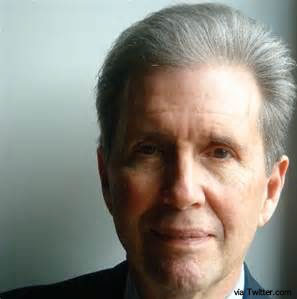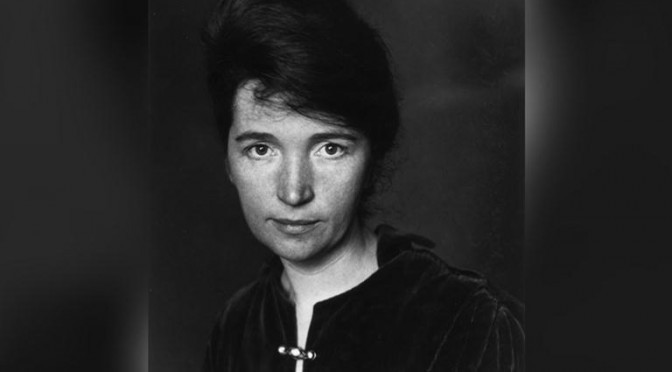
Alexander Sanger (via Twitter.com)
Alexander Sanger, the grandson of Planned Parenthood founder Margaret Sanger, is dedicated to the pro-abortion movement. In 2004 he wrote a book called Beyond Choice: Reproductive Freedom in the 21st Century. In it, he makes his support for abortion very clear. But there are several passages from the book that seem to concede pro-life points.
Sanger is definitely no champion of preborn babies. In the following excerpt, the term “reproductive freedom” is a code word for abortion on demand.
Reproductive freedom is vital to humanity. It is even more vital than all the other freedoms that we cherish – freedom of religion, freedom of thought and speech, and the freedom to live our lives as we see fit. Humanity has these freedoms, or should have them, because they add to human happiness and make for a better world. So does reproductive freedom. (70)
So in his mind, being allowed to have an abortion is more important than being allowed to choose your own religion, being allowed to criticize the government, or even being allowed to think your own thoughts. A society with mind control, religious persecution, and political oppression is preferable to one with pro-life laws. This view is definitely in line with the most radical views of Margaret Sanger.
Yet Alexander Sanger also admits that men often abandon women who are pregnant, compelling them to “choose” abortions they feel pressured into by lack of support and stigma from society.
Legal abortion has led to a situation where there is little community pressure for the man to marry the woman and he often disappears, leaving the woman to make the decision on her own. At this point community pressure can have a decisive influence on her decision. Unmarried childbearing may not be acceptable where she lives, and she is forced to have an abortion, even if it is her last chance to have children. (128)
While Sanger advocates women’s right to choose abortion free from pressure caused by male abandonment, his admission that such pressure occurs in women’s lives confirms something that pro-lifers have been arguing for years.
Sanger also challenges the pro-choice argument that abortion is in the best interest of teenagers, especially poor ones, and that it spares poor teens from horrible lives:
Poor inner-city teens start life with two strikes against them. However, bearing a child while a teenager is not necessarily a third strike. There are even some indications that having a child can enhance the life prospects of a young woman in certain circumstances. One African-American woman in the South Bronx, then aged 22 with a five-year-old child, told me that having a baby as a 17-year-old was the best thing that ever happened to her. Her life was in a rut of skipping school, messing around with many young men, and taking drugs. Having a baby, she said, “made me grow up and fast.” She realized that she was responsible for this child and, even though she had help from her family, she was the one ultimately responsible. She stopped taking drugs, stayed in school, even got a part-time job after school, and, when I met her, was well on her way in adult life. This is by no means a unique story. (130)
He also says:
There is also evidence that teenage girls give birth to healthier babies than they would if they waited until their 20s to give birth. (129)
While teen motherhood is far from ideal, the world is full of women who became pregnant in their teens and are successfully raising their children. Pro-life pregnancy centers often help these mothers with many of their needs, and pro-life groups such as Feminists for Life advocate for programs to help them as well as policies of support for pregnant or parenting students at high schools and colleges.
Sadly, Sanger continues to defend abortion on demand, even though he concedes that it is the taking of a life:
While abortion takes life, it enables life to reproduce itself successfully, not on nature’s terms but on human terms. The unborn child is not just an innocent life. While it is the epitome of human destiny and the greatest potential joy that humanity can create, it is also a liability, a threat, and a danger to the mother and to the other members of its family. (261)
The developing baby is very seldom any kind of threat to his or her mother. Abortions to save the life of the woman are so rare as to be almost nonexistent. For example, practicing abortionist Dr. Don Sloan has said:
If a woman with a serious illness – heart disease, say, or diabetes – gets pregnant, the abortion procedure may be as dangerous for her as going through pregnancy… with diseases like lupus, multiple sclerosis, even breast cancer, the chance that pregnancy will make the disease worse is no greater that the chance that the disease will either stay the same or improve. And medical technology has advanced to a point where even women with diabetes and kidney disease can be seen through a pregnancy safely by a doctor who knows what he’s doing. We’ve come a long way since my mother’s time….
The idea of abortion to save the mothers’ life is something that people cling to because it sounds noble and pure – but medically speaking, it probably doesn’t exist. It’s a real stretch of our thinking.
It is not a woman’s life that is threatened by a pregnancy, it is her lifestyle if she chooses to keep the baby. And keeping the baby is optional because there are millions of couples in the United States waiting to adopt infants. Although pregnancy is not a ‘walk in the park’ for many women, what most birth mothers have facing them is nine months of inconvenience and then separation – by choice – from their babies after birth. Is it justifiable to kill what Sanger concedes is an “unborn child” who is “innocent” to avoid these things?
Pro-lifers say no, even though Alexander Sanger says yes. Abortions almost never have to be a “danger’ to the mother and are never a threat to the other children in the family. In fact, many siblings of aborted babies suffer grief and trauma when they find out they would have had a brother or sister, but he or she was aborted.
There is no doubt that many of Sanger’s views and arguments are extreme. However, even though he is an extremist who thinks abortion rights are the most important thing in society, he acknowledges that pro-lifers may be right about some things.
Source: Alexander Sanger Beyond Choice: Reproductive Freedom in the 21st Century (New York: Public Affairs, 2004)







